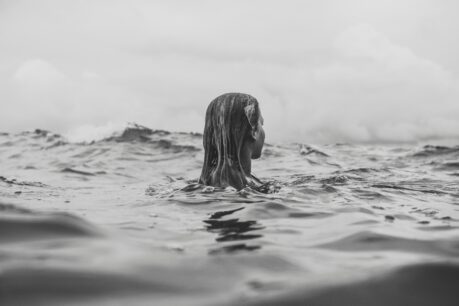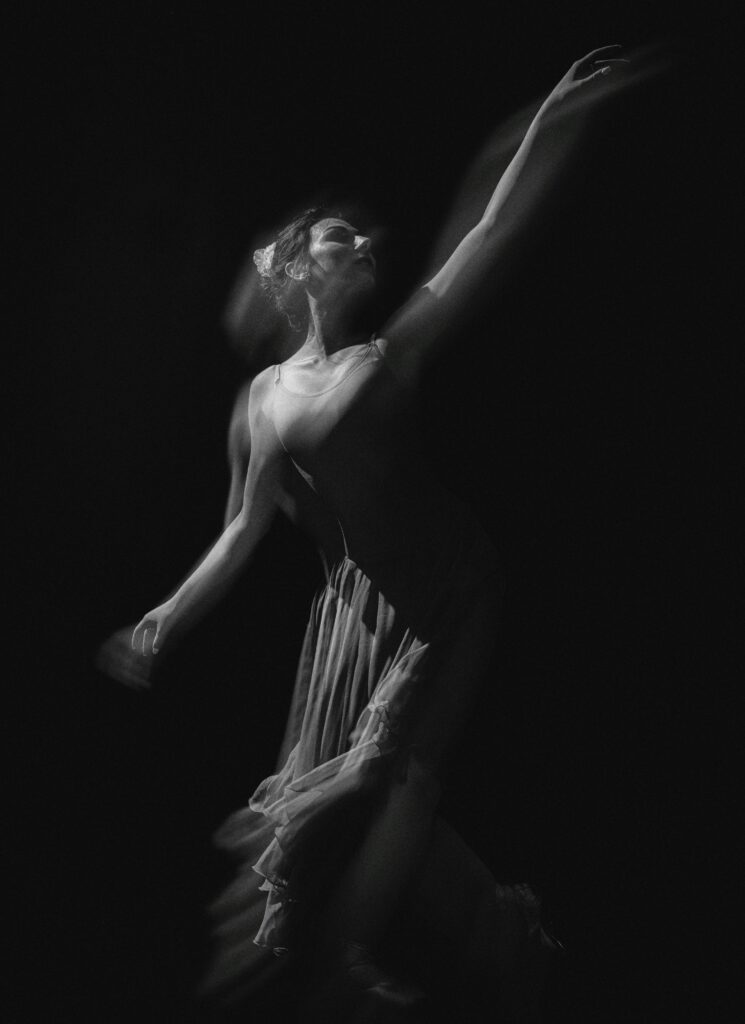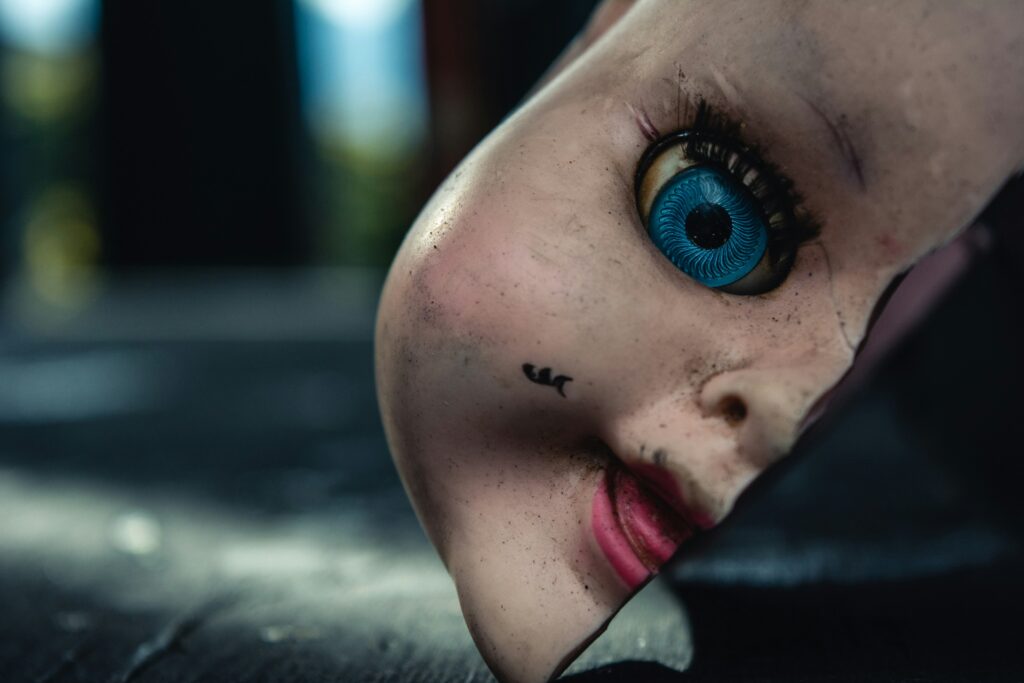Water Rising
Clare Reddaway, February 12, 2024
She stands in her doorway. The gothic stone arch frames her like a stained glass saint. She stares out over the moor. The rhynes are overflowing, the fields are smooth sheets of glass. The trees poke through the water as though gasping for breath. Even the pylons look stunted. The rain has stopped, but the sky is bruised black. Shreds of white cloud scud in front of a chasing wind. It is not over yet.
She does not want it to be over.
The chapel’s land slopes up from the fields. A wall separates what was once hallowed ground from the pasture. It is built of gravestones, cleared when the chapel was deconsecrated. Elijah Blunt, Blessed Are The Dead Who Die In The Lord. Margaret Banwell, Departed This Life. Eliza Watts, Thy Will Be Done. Drowned. Drowned. Drowned.
The water is at the gate. The thin wrought iron bars will not stop it. She wonders what they would stop, those slender decorative twists. A sinner perhaps. Fingers trembling on the latch, unable to step over the threshold, unable to face the wrath of the Almighty.
She hears a telephone ringing, deep in the chapel. She does not move. She knows who it will be. They have been ringing all day, on the telephone, on the mobile. The telephone rings and rings and rings. Then it stops.
She is wearing sturdy leather boots but she has been standing for so long she can no longer feel her feet. The cold is creeping up her legs, up towards her heart. Her thick wool skirt provides some protection but she is not wearing a coat. She welcomes the cold.
Out of the corner of one eye, she catches the flick of an ear, the inclination of a head. It is the hare. It has come back. It raises its long brown muzzle to sniff the air. It is watching her. She turns to face it. It does not move.
‘Hare before, trouble behind, change ye, cross, and free me,’ she mutters, as her grandmother taught her. But she wonders why she bothers. She knows a disaster is coming. She doesn’t need the hare to tell her.
Spade on peat, the rasp, and clunk of metal cutting earth, that black earth that surrounds her. She hears it every night, has done since he went. Recently, she hears it during the day. Rasp. Rasp.
The sound of a grave being dug.
There is no one there, no one is digging. Water lies deep over the peat.
She focuses on the water. She strains to see into the depths, to rip through the meniscus, to plunge beneath the surface. What she is searching for is skittering just out of her grasp. As she stares, a shimmer passes over the water. An agitation on the still surface.
It could be the wind, of course.
She hears him coming before she sees the car. A green Range Rover forges through the deep water that covers the road.
He stops by the gate and gets out. A solid man, with a bluff face. She recognizes him. A newcomer to the area. Obviously.
“It’s time to go,” he says. “There’s more weather on the way.”
“No,” she says.
He stares at her. At the luminous pale oval of her face, the dark eyes that don’t flicker or flinch. He’s seen her in the village, always alone, pushing her pram to the shop and filling it with tins and vegetables. The villagers step aside, turning their faces away. He’s watched her push that pram back along the lane. There’s something about the straightness of her back, the curve of her hip. Or is it the way her hair curls into her neck? The fine bones of her wrists?
“It’s dangerous. The waters are rising.”
“I know.”
Let her rot, they’d said in the pub as they drew up lists and compiled rotas, as they liaised with the council and informed the outlying farms, as they gathered provisions and sleeping bags in the hall. We’ve done our duty, we’ve told her what’s coming. But he is a man of action. He casts himself in the role of hero. He can persuade her to leave, of course, he can, she’ll listen to him. People do. But now he’s here he’s not so sure.
He shivers. He glances over his shoulder. Is something moving, across the water? He thinks of what they mutter over their pints and their whiskies when they dare. She killed him, they say. She must have. People don’t just up and leave. Not those that hail from around here. Not the sons of the soil. The body’s never been found, that’s all. But it’ll wash up. They always do. If not the water, then the peat will give up its dead. Eventually.
He tries again.
“There’s no high ground here. Looks like your chapel doesn’t even have an upstairs. You can’t spend the night on the roof. You’d freeze to death up there.”
He looks up at the steep angled roof. The slates are glossed wet. He sees her clinging onto the chimney, skirt billowing, crouched on the ridge like a malevolent crow. He shakes his head to get rid of the image.
“Go away.”
“I know you don’t want to leave, no one wants to abandon their home. But it won’t be for long.”
He doesn’t like the wheedling tone in his voice. He needs to take action. He steps onto the path. He can pick her up, she’s only a slip of thing, sling her over his shoulder, put her in the back of the car, job done. It’ll be for her own good.
She bends back into the chapel. He thinks she’s getting a coat, picking up her handbag. Ladies like their handbags.
Then he hears that metallic double ratchet of a shotgun being cocked. The barrel is pointed at his chest. The gun nestles comfortably on her shoulder.
He swallows. He’s ashamed to feel the hairs on his forearms rise. He holds his hands up.
“Now, now. There’s no need for that.” A chill of fear prickles his neck. “Put it down.”
“Leave me alone,” she says.
“I’m trying to help.”
“I don’t need your help.”
He looks at the gun. At those slender blue-white wrists.
“Have it your way. But don’t go endangering brave men by calling the emergency services when you could get out now.”
Puffed with righteous anger, he clambers behind the wheel and roars back towards the village, driving a wave before him and leaving a furious wash in his wake.
The ripples still.
Sabine steps back into the chapel. She places the shotgun against the wall. She shuts the door and leans against it. She closes her eyes. She can feel her heart beating, beating, too fast. The relief is making her hands tingle and shivers run down her arms.
She shouldn’t have done that. She should have reasoned with him. Even screeched at him. That would have done the trick. Not the gun. Never the gun. He’ll take the tale back to the village and they’ll hate her even more. She wonders whether that’s possible. What form that hate will take.
Maybe she’ll never need to go to the village again. After tonight.
She needs to gather herself. She feels she’s been dissolved, her spirit ruptured into a thousand disparate molecules, vinegar dripping on oil. She needs to re-centre, to emulsify.
She paces a familiar route around the space. It is open and high to what had been the chapel roof, this airy wide room which is both her world and her prison. She strokes the pieces they’d gathered together, scavenged from junkyards and re-crafted into objects of beauty. His shoes, battered brown leather, shoved under a slab they’d made into a worktop, carving their names over and over, entwined into a runic inscription. And the more elliptical objects. The chunk of driftwood collected from the beach where they’d first made love. The bleached sheep’s skull. The smooth white whorl from deep inside a broken conch shell. The photograph of him is the least of it, but she runs her fingers over his mouth, along his cheek, and stares into his eyes which squint into the sun. Finally, she opens the chest. The tiny baby clothes carefully ironed and scented with lavender and sweet cicely, folded and neat in a pile. She picks up one on the top, a babygro not more than twelve inches long, white with bright yellow stars. She breathes in the scent. New cotton. Never worn, in the end. She closes the chest.
She is ready.
She steps out onto the threshold. She holds her head up high. The clouds are roiling and boiling on the horizon. She calls to them, she summons them. She calls for the rains, for the storm, come to me, cover the land, cover me. Surrender your dead.
The brown hare lopes up the path and sits, poised. It places one foot on the base of the step. A flash of a hare’s foot hanging from a silver chain, bobbing on a wide bosom. A hare’s foot charm for luck and witchcraft. She knows that if the hare comes any further death will come with it. She challenges the hare.
“Cross and free me, cross me and free me,” she says, then again, then louder and louder.
The hare, if it is a hare, turns and lopes away, disappearing into the gloom that is sliding in across the fields.
The rain when it comes is fierce and strong, stinging sharp against her cheek. She turns her head, her hair in whips and rats’ tails. Her clothes are drenched, her skirt thick and heavy around her waist. She staggers down the steps and along the path. The water is rising, but it is still hardly over the edge of her boot.
It is not enough!
She summons all her force and she calls. She knows of the wave that came, centuries ago now, the tsunami that ran faster than a greyhound, that towered three hundred feet tall and drove all before it, she knows that this is possible and that the tides and the storm and the wildness can do this for her if only she finds the right words, the right call. She can do it, she must do it! She stands calf deep in the water and she shrieks into the wind to come to her!
But the rain slows.
No wave comes.
The waters stop rising.
A thin line of bright light dividing sky and land appears on the horizon.
The sky pales.
The bruise fades to violet, to mizzle, to grey, to smoke. The sun shines through to kiss the distant reeds gold.
She has failed.
She drags herself back up the path, her sodden skirt dragging behind her, her soaking feet squelching in her heavy boots. She staggers into the chapel and sinks to the floor.
The telephone starts to ring. She doesn’t answer, she knows what they will say. The danger has passed. It is safe now. Alert level lowered. Stand down.
She sobs.
When there is not a drop of salt left to cry she gets to her feet. She pulls off her wet clothes. She has no answers. Nothing has been solved. She wraps a blanket around her body and she begins to lay the fire. Her skin is raw with cold. Her teeth are chattering. She needs to get the fire lit or she will die of pneumonia. She does not want to die of pneumonia. It’s not what she has planned.
There’s a thump on the door.
At first, she thinks it is the wind.
Then she thinks it is the hare.
When it comes again she thinks she must see.
She takes up the shotgun and double ratchet cocks it ready before she opens the door.
He is standing there. On her threshold. With his laughing eyes and his wide mouth. The bulk of him. The size of those broad shoulders. That brown hair with its curls. The same curls that had covered their daughter’s head when she was born. That one curl that nestles in the locket around her neck.
But he looks different. His hair is wet, yes, but more than that. It is laced with pondweed. His cheeks are smeared with peat. One ear is missing. There is no blood. He has a long brown scar along his right arm. A foot is skewed the wrong way. His skin is as pale as a parchment with a green sheen overlying it.
“You called me,” he says. “So I came.”
“I called you so many times,” she says.
He smiles.
There is part of her that doesn’t want him to come in.
There’s part of her that wants him to come in and stay forever and ever and ever so that she is never apart from him again.
She lays the shotgun against the wall. She holds out her hand and slips it into his and pulls him over the threshold, pulls him into her arms. He is cold to the touch. Clammy. But he is solid. And when he laughs it is a deep laugh that rumbles from the depth of his chest, as though his chest is really there. It is there. It really is.
She is not surprised that when she wakes he is gone. A dent in the pillow and a single dark hair is left behind. Along with a dankness hanging in the chill air.
The sun is glittering on the fields and it is as if she lives in Kashmir or Venice or on those northern Finnish lakes, any place of shimmering water and watery horizons. She is now an island. She stands on her threshold, throws her arms wide and holds her face up to the sky as she feels a familiar quickening in her belly.
The waters retreat, in time, leaving a rank stench and a smear of filth on the land. She works in her fields. She keeps away from the village.
The next time she sees the hare she startles it from beneath her feet as she strides the boundary of her land. It leaps away, its golden eyes wide and she finds three leverets hiding in the deep grass at the base of the hedge. She longs to stroke them, to pick them up, to feel the warmth of their fur and the beat of their hearts. But she knows that her touch would destroy them, that at the scent of her, their mother would leave them to starve. She backs away.
She strokes her stomach. She must be patient.
When her time comes she crouches on all fours on the floor of her chapel and she roars as she struggles and writhes and pushes and shrieks her pain, until out of her glides a new creature. This one is not the same as their daughter. This baby opens his mouth, gaping at the air, and in his cry, she hears the shriek of the gulls, the call of the curlew, the chirrup of frogs in the night-time. She hears the wind in the willow branches, she hears the lap of the storm-whipped wave, the suck of the black mud, and sometimes she hears the angry roar of the water in flood.
She wraps the baby in a soft blanket, carefully tucking under the covers the webs of his fingers and the gills that open and close in his neck. She places him in the pram and walks to the village, head held high. The villagers see her beaming smile and smile back. They don’t look hard at what it is that she is pushing in her pram. If they hear the occasional sound that seems unusual or catch a whiff of stagnant water, they ignore their senses as they always do. They sell her tins and vegetables and dried goods and they make sure they keep their comments to the weather.
As the seasons come and go, the baby grows and thrives. He is quicker and more dextrous than most. She tries not to worry when he learns to crawl and is drawn, again and again, towards the rhynes, as he smears his body with black peat, covering the greenish tinge of his skin, as he lays his head in the wet furrows and places his mouth into the mud, and licks and licks.
She locks and bolts the doors to keep him in. But she is not surprised that one night, when she is not quite sleeping, she hears a slithering. She opens the door and sees in the moonlight her son moving surely across the field. She runs after him, her feet bare in the wet grass. The rhyne is a thin silver strip in the darkness. She nearly gets to him, she nearly succeeds, she is only yards away, one, two, three more strides, she can almost reach out her fingers and touch his body, then he slides head first into the water. She plunges after him, calling, hands and feet sweeping, stretching out. He rises once, too far out of reach, hair as sleek and wet as an otter, and turns to her. He holds her eyes and smiles. Then he dives down into the black water and is gone.
She cries then as she has not cried before. Cries for her baby and for her daughter, for her lover, and for herself.
Then she turns and trudges back to her chapel.
She is not scared for him. She knows he will be safe. Her sorrow is for herself.
But she will wait.
She knows that when the waters are high, when the storms are gathering on the horizon, that when the time is right she will call.
And they will come to her.
You may also like
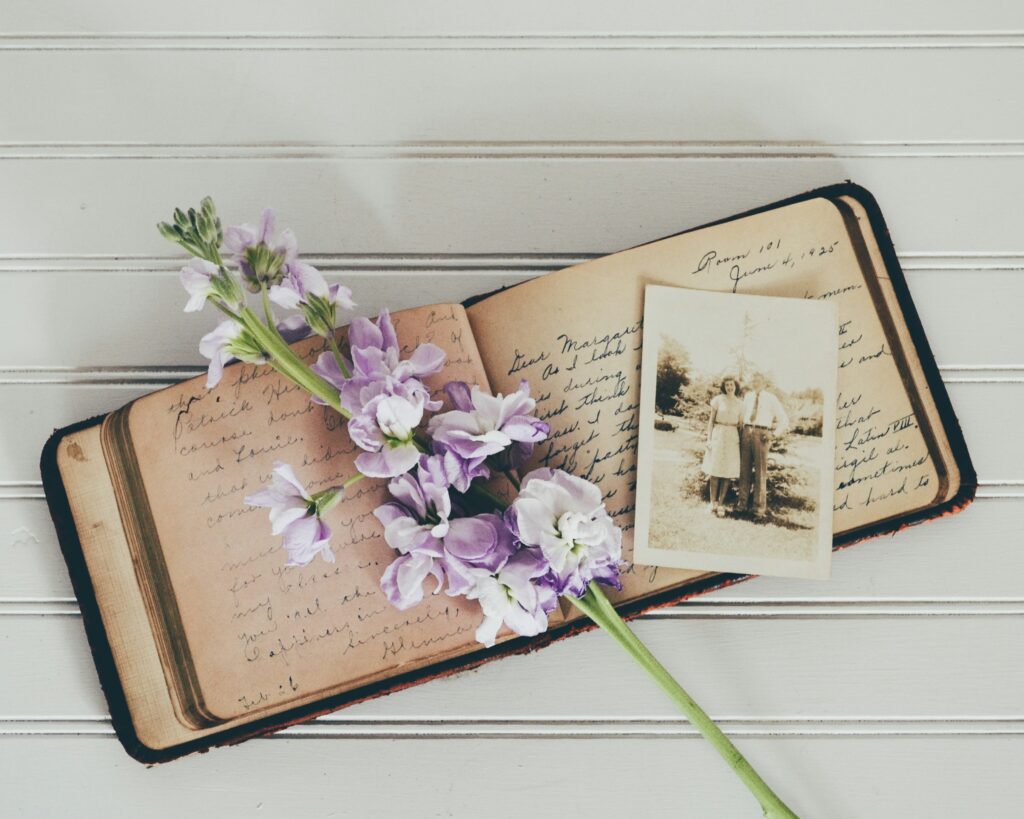
Eyes of the Beholden
Unspoken desires linger in the shadows of a teacher's life, revealed through art
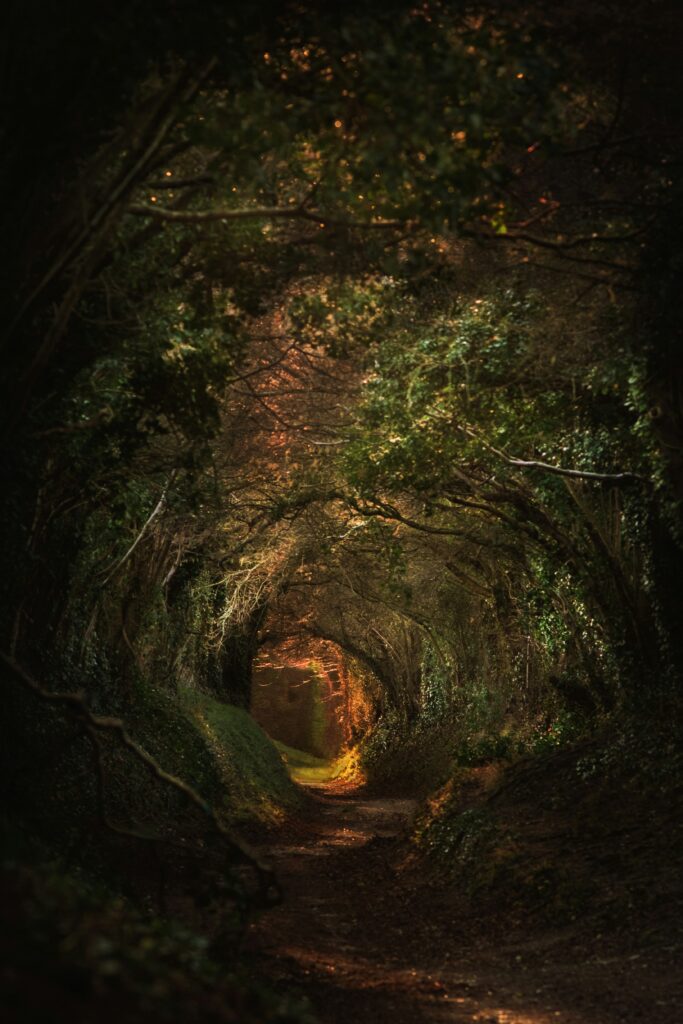
LOST
Bessie's odyssey through stormy nights, lost love, and secret graveyards unfolds with haunting beauty in "Lost" by Sandra Dennis.
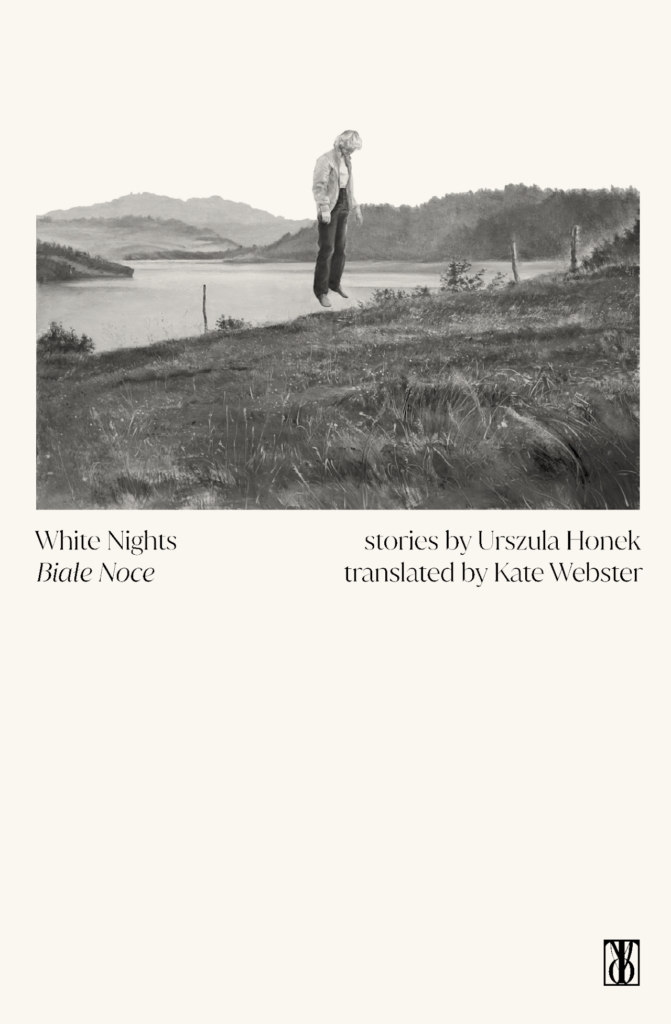
Book Review: White Nights by Urszula Honek
The debut short story from Polish writer Urszula Honek, White Nights, is akin to reading an account of a haunted place – one that is beautiful and devastating in equal
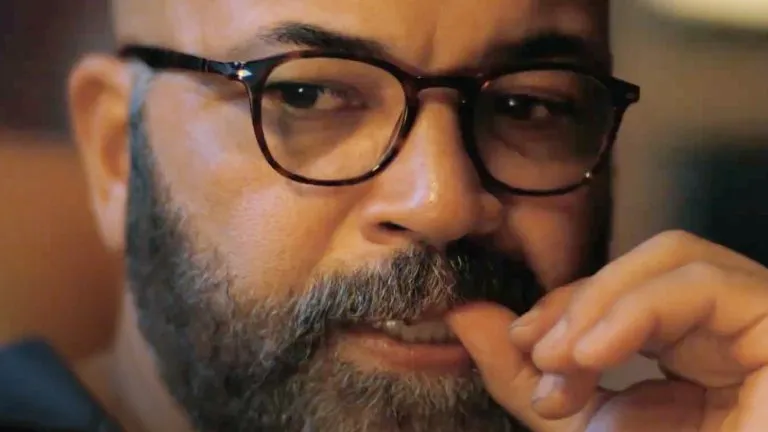
Beyond the Surface: The Multifaceted Lives of ‘American Fiction’
In essence, "American Fiction" and the experiences it draws from remind us that we are indeed more than the sum of our parts.
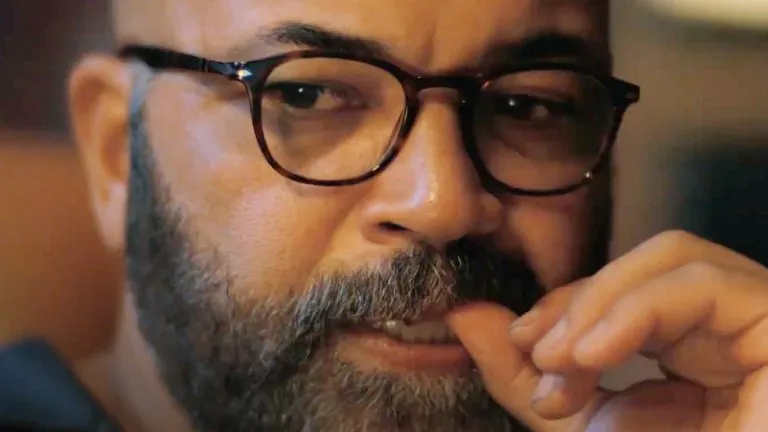
Beyond the Surface: The Multifaceted Lives of ‘American Fiction’
The narrative of “American Fiction” unfolds with a dual focus: it not only scrutinizes the unique pressures faced by Black creatives but also delves into the intricate and sometimes tense…
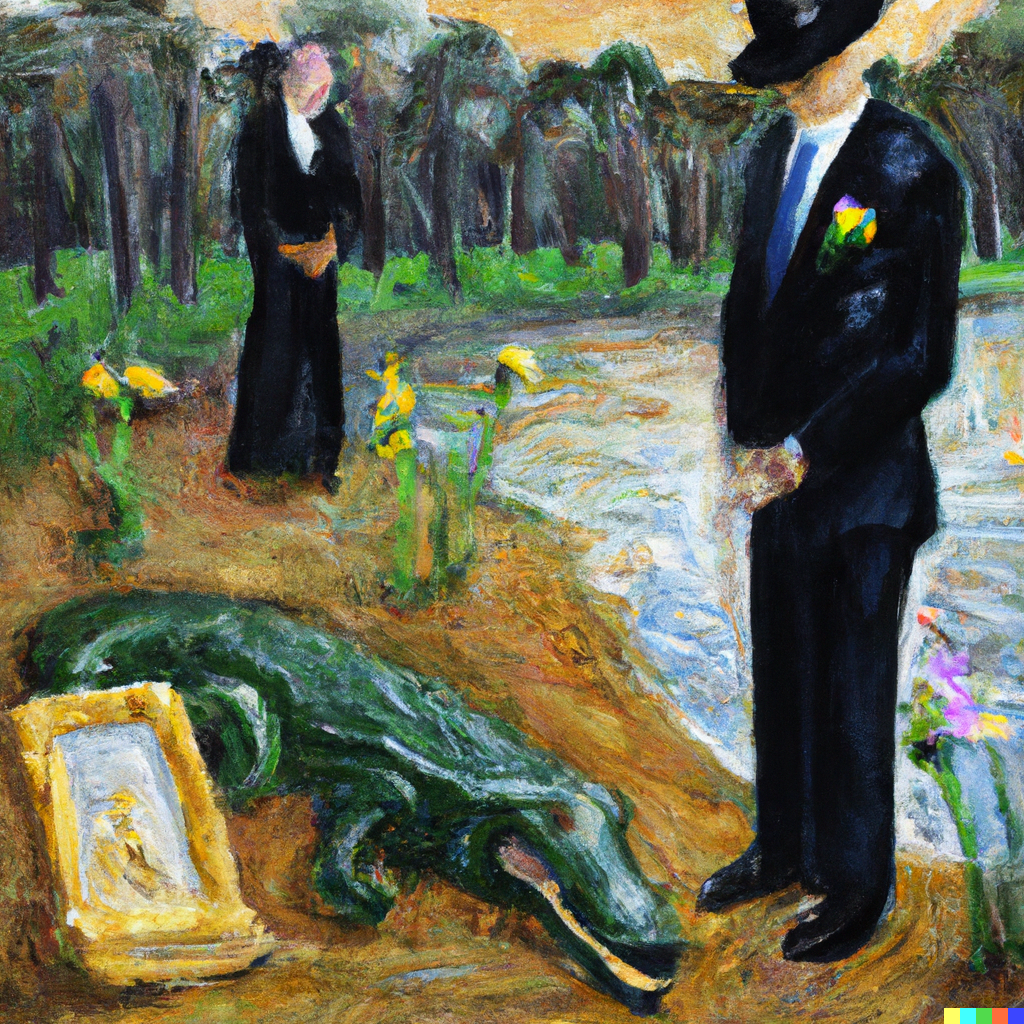
Uncle Bobby’s Funeral
Reluctant family faces the eccentricities of Uncle Bobby's funeral in swampy Chipley.

We Die for What We Believe
Amid a concealed gizzard surgery program, May's call for transparency sparks a tragic collision of beliefs, extraterrestrial revelations, and irreversible consequences.




